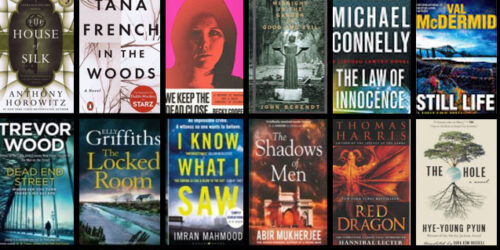- I’m fascinated to see what captures the imagination and I find it thrilling to witness other people’s ideas come to life. I love it when the unexpected finds its way onto the page and becomes clearer and sharper with each iteration.
- I’m certain that everyone has interesting stories to tell. One of the exciting parts of writing is finding ways for those stories to come to the surface and shine.
- I believe each person has a unique voice. All your experiences, preoccupations, and questions will inform your writing. Even if it’s fiction! And that’s a good thing. Let it all in – you can always disguise or tweak it later. But no-one else sees the world from your exact perspective, so no one else can tell the story you will tell.
- I think messy drafts, gaps, uncertainties, and places where you shrug your shoulders and say ‘Um…I don’t know?’ are not only inevitable, but signal fires. These apparent stumbling blocks are often the exact places where digging will yield buried treasure, waiting to be unearthed and polished up through writing.
- When you write a story that only you can tell, you’ll write the story you need to tell. And it may well be the story you need to read.
- And last, more important than getting it right is getting it written.
As a teacher, I believe that my job is to welcome you, to meet you on the page, to do my very best to see where you’re coming from and where you’re hoping to go and offer insights or observations that may help along the way. Teaching is an opportunity to walk with you on your creative path for some time and I consider that a sacred calling.
Feedback as an ongoing conversation

One of the features of Start Writing Fiction is that participants will receive personalised feedback from the tutor with every module. This amounts to six opportunities over twelve weeks to develop an ongoing conversation about your work and your writing. Philosophies of feedback vary among writing tutors. Here’s mine:
My philosophy of feedback is that the writer has invited me to be a guest, a witness, to their creative process and that is a brave and generous act. I’m not there to fix or improve someone else’s work (that’s the writer’s job). What I get to do is to be curious and ask questions. Together, we’ll draw out why this story matters, who these characters are, and where the pulse of the piece is. I’ll point out what I notice and what I wonder about and you can decide if these are the things you want a reader to notice, to wonder about. I firmly believe that the final word on a piece of writing is always the writer’s own.
When we start writing a story, we often think we know what the story is about. On an immediate level, we can say ‘this is a story about a lemonade stand’ or ‘this is a story about missing shoes.’ But on another level, I think we don’t always know what it’s about until we’ve written it. A story can be about many things. Ideally, feedback reveals more dimensions as we delve into the characters, the setting, the possible points of view, the structure. Discussion around each of these aspects of craft offers another lens to examine a story and discover what else it might be about.
In my own work, I have found it fruitful to view revision not simply as a path to improvement, but as a method for expanding the borders and edges of the work.
And what does a writer do with feedback? Consider it carefully, keep what is useful, and set the rest aside. When I give feedback, I don’t expect that a writer will take all my observations or questions on board. But I do hope that some will chime. Discerning which feedback furthers your art is a great skill for writer.
Feedback can fuel revisions. I embrace the meaning of the word revision literally: seeing again. When I revise, I look again at my words, but with a new perspective or question in mind. In my own work, I have found it fruitful to view revision not simply as a path to improvement, but as a method for expanding the borders and edges of the work. The best feedback asks hard questions and nudges you forward. It challenges – Can you take this idea or image even further? Where will it lead if you do? I believe that the creative lives in the unknown, and useful feedback can help guide us there.




 I designed and facilitated a lot of creative writing courses through my online business, Spilling the Ink, from 2014-2017. In 2018, I paused the courses to focus on developing my novel, but I continued individual mentoring through 2020. While I’m new to teaching with the National Centre for Writing, this upcoming course marks a return to a beloved calling for me and I’m delighted about that.
I designed and facilitated a lot of creative writing courses through my online business, Spilling the Ink, from 2014-2017. In 2018, I paused the courses to focus on developing my novel, but I continued individual mentoring through 2020. While I’m new to teaching with the National Centre for Writing, this upcoming course marks a return to a beloved calling for me and I’m delighted about that. Melissa Fu grew up in Northern New Mexico and now lives near Cambridge, UK, with her husband and children. She graduated from Rice University with a double major in Physics and English and went on to earn a Masters in Physics at the University of Colorado, Boulder, and a Masters in English Education at Columbia University. She has worked in education as a teacher, curriculum developer, and consultant.
Melissa Fu grew up in Northern New Mexico and now lives near Cambridge, UK, with her husband and children. She graduated from Rice University with a double major in Physics and English and went on to earn a Masters in Physics at the University of Colorado, Boulder, and a Masters in English Education at Columbia University. She has worked in education as a teacher, curriculum developer, and consultant.


